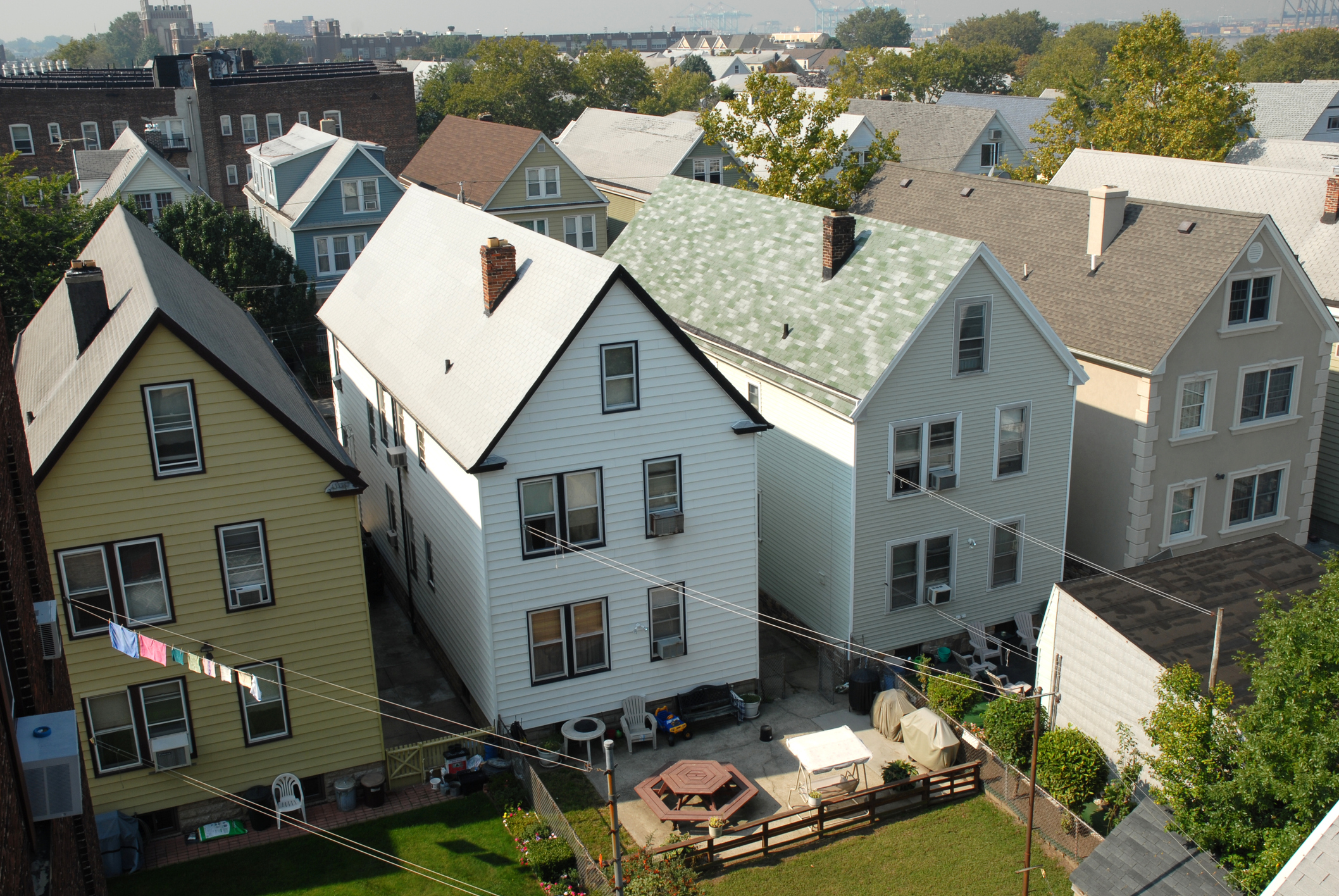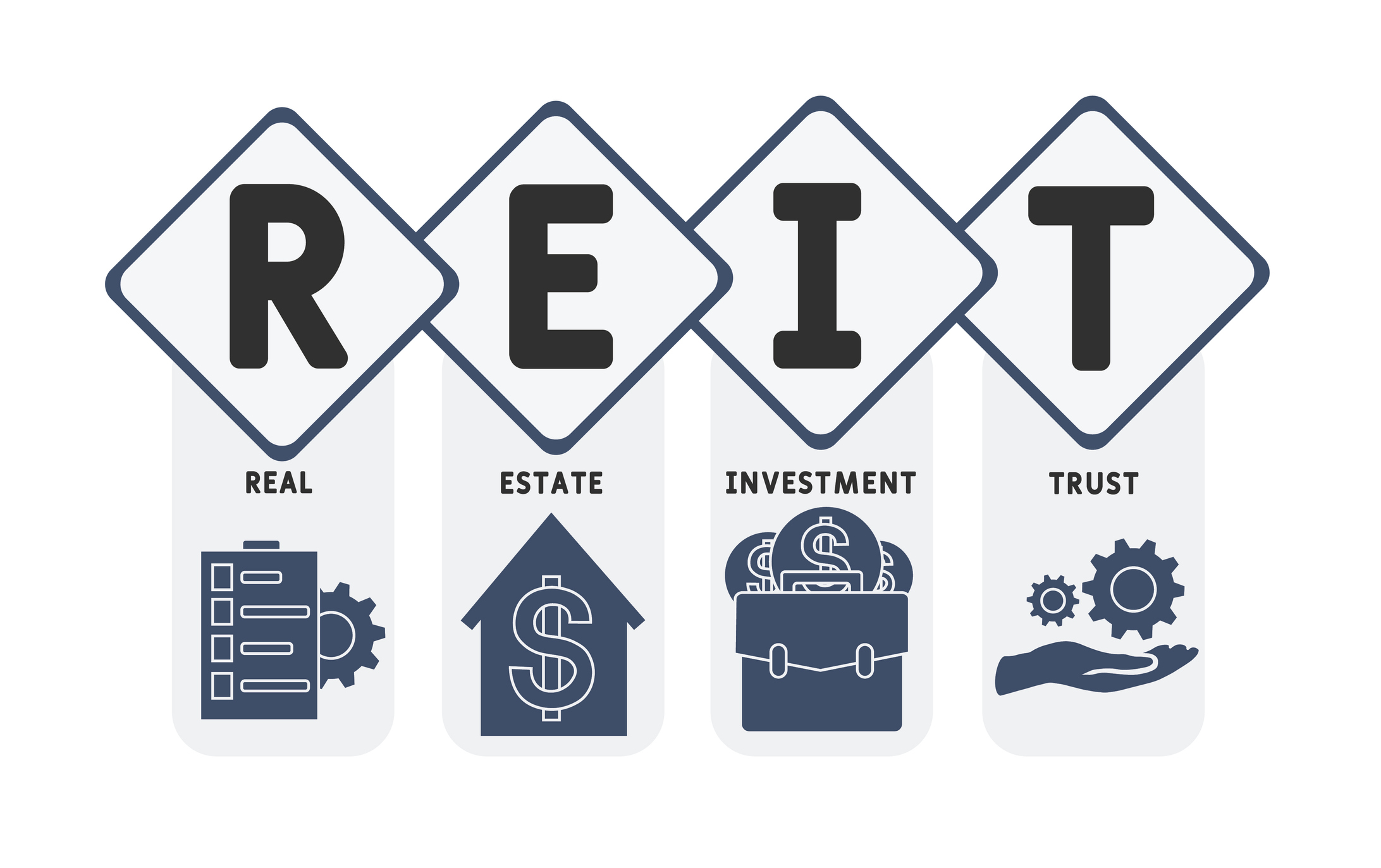Real estate dividend stocks are great options for investors seeking to collect passive income. Commercial real estate tends to generate recurring rental income, enabling companies focused on owning real estate to pay attractive dividends. Here's a closer look at some of the best dividend-paying stocks in the commercial real estate sector.

Top real estate dividend stocks
Most companies focused on owning income-producing commercial properties utilize a real estate investment trust (REIT) structure. REITs must pay dividends to maintain their tax advantages, so many of the top real estate dividend stocks are REITs.
Here's a look at some of the top real estate dividend stocks:
| Name and ticker | Market cap | Dividend yield | Industry |
|---|---|---|---|
| Realty Income (NYSE:O) | $58.3 billion | 5.10% | Retail REITs |
| Essex Property Trust (NYSE:ESS) | $16.2 billion | 4.09% | Residential REITs |
| Federal Realty Investment Trust (NYSE:FRT) | $9.0 billion | 4.25% | Retail REITs |
| NNN REIT (NYSE:NNN) | $8.1 billion | 5.55% | Retail REITs |
| Vici Properties (NYSE:VICI) | $30.7 billion | 6.14% | Specialized REITs |
1. NNN REIT
NNN REIT (NNN +0.56%) has one of the best records of paying dividends in the REIT sector. It extended its dividend growth streak to 36 years in a row in 2025. That's the third-longest dividend growth streak in the space. It had an above-average yield of around 5.8% in early 2026.

NYSE: NNN
Key Data Points
The REIT focuses on investing in single-tenant, net-leased retail properties such as automotive service centers, convenience stores, and restaurants. It invests in properties secured by long-term (10- to 20-year initial lease terms) triple net (NNN) leases. Those leases produce very stable rental income.
NNN REIT pays out a conservative percentage of its cash flow in dividends. It also has a conservative balance sheet, which gives it the financial flexibility to continue investing in net lease retail properties.
2. Federal Realty Investment Trust
Federal Realty Investment Trust (FRT +0.71%) is one of the best dividend stocks in the real estate sector. The retail REIT delivered its 58th consecutive year of increased dividends in 2025. That's the longest streak of annual dividend increases in the REIT sector and qualifies Federal Realty as a Dividend King, a company with 50 or more years of dividend increases.

NYSE: FRT
Key Data Points
As of early 2026, Federal Realty offered an above-average dividend yield approaching 4.5%. The REIT has consistently increased its payout by focusing on high-quality shopping centers in major markets. It also has a conservative dividend payout ratio for a REIT and a strong balance sheet, giving it the financial flexibility to sustain its dividend while investing in expanding its portfolio.
Federal Realty focuses on investing in high-quality shopping centers in desirable locations across major metro areas. It owned a little more than 100 of them in early 2026.
The REIT also invests in developing and redeveloping properties to make them more appealing to shoppers and tenants. That has included building about 3,000 residential units at its properties, along with hotels and office buildings. The investments have diversified Federal Realty's revenue streams while reducing the potential impact of rising e-commerce adoption on its properties.
3. Essex Property Trust
Essex Property Trust (ESS +2.21%) also has a long history of increasing its dividend. The apartment-focused residential REIT delivered its 31st consecutive annual dividend increase in 2025. Essex Property Trust provided investors with an above-average dividend yield of more than 4% in early 2026.

NYSE: ESS
Key Data Points
One of the keys to Essex Property's success is its focus on high-demand West Coast markets. The REIT has benefited from above-average rent growth. It also has a conservative dividend payout ratio and a strong balance sheet, enabling the company to pay a sustainable dividend while expanding its apartment portfolio.
The REIT has multiple external growth drivers. The company often works with joint venture partners to acquire apartment communities. It will make preferred equity investments in multifamily communities that supply it with steady cash flow.
Essex also invests in development projects to build new apartment homes. These investments have enabled the REIT to steadily increase its cash flow to support consistent annual dividend increases.
4. VICI Properties
VICI Properties (VICI +0.35%) has increased its dividend every single year since its formation (eight in a row as of 2025). The REIT has grown its payout at a 6.6% compound annual rate during that period, almost triple the average of its triple net lease REIT peers (2.3%). VICI Properties' dividend yielded around 6.5% in early 2026.

NYSE: VICI
Key Data Points
The REIT focuses on investing in market-leading gaming, hospitality, wellness, entertainment, and leisure destinations and owns several iconic casinos along the Las Vegas Strip. It leases these properties back to operating companies under very long-term NNN agreements (40-year weighted average remaining lease term in 2025).
An increasing percentage of its leases linked rents to inflation (42% in 2025, rising to 90% by 2035). As a result, VICI Properties produces very stable, steadily rising rental income.
VICI Properties has many ways to continue growing its portfolio and dividend. It buys properties in sale-leaseback transactions with the owner-operator. It provides tenants with capital to fund expansion projects in exchange for more rent. The REIT will also make real estate-backed loans to help fund new experiential development projects that often come with the option to buy the completed property.
5. Realty Income
Realty Income (O +0.03%) is another REIT with an excellent dividend growth track record. The company pays a monthly dividend that yielded around 5.5% in early 2026. Realty Income had increased its payout 133 times since its initial public offering (IPO) in 1994, including in each of the past 113 straight quarters. That's more than 30 consecutive years. It makes Realty Income a great option for those seeking to collect passive income from real estate.

NYSE: O
Key Data Points
One of the keys to Realty Income's success is its focus on investing in a diversified portfolio of properties net leased to high-quality tenants. It owns retail properties (79.9% of its base rent in late 2025), industrial (14.6%), gaming (3.1%), and other properties such as data centers (2.4%). The REIT focuses on owning properties resistant to disruption from e-commerce and economic downturns, such as pharmacies, convenience stores, warehouses, and grocery stores.
Realty Income has a long history of expanding its portfolio by completing sales-leaseback transactions with its operating tenants. The deals provide the operating company with cash to expand while supplying Realty Income with more income-producing properties.
The REIT has a conservative dividend payout ratio and a top-tier balance sheet. That gives it the financial flexibility to expand its portfolio to drive steady dividend growth.
Pros and cons of investing in real estate dividend stocks
Investing in real estate dividend stocks has its share of benefits and drawbacks. Some of the pros of investing in the sector include:
- Passive income: Real estate typically generates stable rental income, providing companies focused on owning commercial real estate with steady cash flow to support attractive dividends. That enables investors to easily make passive income from real estate.
- Growth: Most REITs aim to grow their cash flows through rental increases, development projects, and acquisitions. This growth enables them to increase their dividends and provide price appreciation potential for their investors.
- Inflation hedge: Rental rates tend to rise at a pace that keeps up with inflation. Commercial real estate also tends to grow in value at a rate that can exceed inflation. This provides investors with a hedge against inflation.
On the other hand, here are some cons of investing in real estate dividend stocks:
- Sensitive to interest rates: The value of commercial real estate tends to fall when interest rates rise. Higher rates make it more expensive for real estate companies to borrow money, which can hamper their ability to grow.
- Growth challenges: Real estate companies can face growth headwinds, such as tenant troubles and declining demand for certain property types (e.g., office space in the suburbs).
What to look for in real estate dividend stocks
The following factors tend to yield the best returns when investing in real estate dividend stocks:
- High-quality portfolios: Look for companies that invest in properties benefiting from durable and growing demand leased to financially strong tenants.
- Strong financial profiles: Evaluate a company's balance sheet, dividend payout ratio, and other financial metrics to ensure it can continue funding its dividend and growth during a market downturn.
- Growth over yield: Over the long term, real estate companies that grow their dividends typically produce higher returns than those that simply offer the highest current yield.
How to invest in real estate dividend stocks
It's easy to add real estate dividend stocks to your portfolio. Here's a step-by-step guide on how to invest in real estate dividend stocks:
- Open your brokerage app: Log in to your brokerage account where you handle your investments.
- Search for the stock: Enter the ticker or company name into the search bar to bring up the stock's trading page.
- Decide how many shares to buy: Consider your investment goals and how much of your portfolio you want to allocate to this stock.
- Select order type: Choose between a market order to buy at the current price or a limit order to specify the maximum price you're willing to pay.
- Submit your order: Confirm the details and submit your buy order.
- Review your purchase: Check your portfolio to ensure your order was filled as expected and adjust your investment strategy accordingly.
Related investing topics
Common mistakes to avoid when investing in real estate dividend stocks
Some common mistakes to avoid when investing in real estate dividend stocks are:
- Yield traps: Investing in a company for its high yield alone might not pay off if it's unsustainable over the long term.
- High leverage ratios: Elevated debt levels can affect a company's ability to maintain its dividend and grow its portfolio if it encounters an unexpected headwind (e.g., tightening credit market conditions or tenant bankruptcies).
- Tenant concentration: If one or more large tenants can't pay their rent due to a financial issue, it could hurt a real estate company's ability to maintain its dividend.
- Lower-quality real estate: A real estate company that owns lower-quality properties (e.g., older office buildings in suburban locations) may encounter long-term vacancies as leases expire and incur high capital costs to attract new tenants, which can reduce its cash flow and returns.





